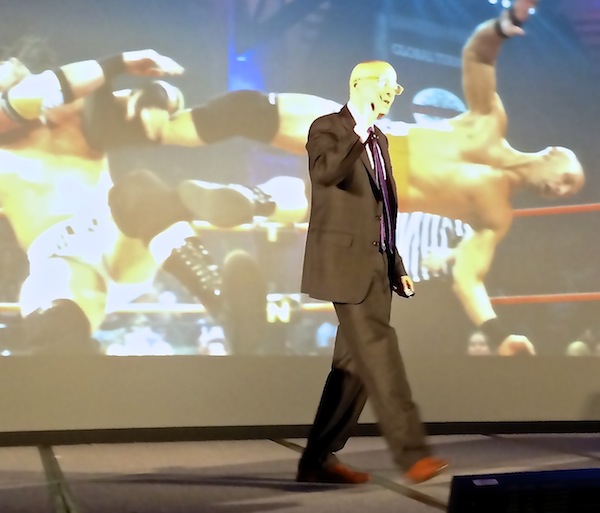
The company I worked for for 29 years, Learfield, brought four or five hundred employees and friends to Dallas last week to celebrate the company’s 40th anniversary. We had two speakers: Ken Blanchard and Seth Godin. Following Mr. Godin’s excellent talk, he took questions.
How important is your blog?
“There’s two kinds of important. There’s the important of ‘can I make a living doing this,’ and the important of ‘this is who I am.’ My blog has nothing to do with me making a living. I don’t run any ads on it and I don’t sell many things on it, almost nothing, and that’s not why I do it and why I’ve been doing it for ten years. I do it because this is my chance to speak the thing I want to say, to talk about what I notice. If I had to pay money to write my blog, I would. The people who have blogs you don’t want to read are doing that blog because it’s their job. So I spend more time on my blog than almost anything I do because it’s my chance to do my art, as I see my art. […] The people who say ‘how am I going to get paid for this tomorrow?’ never make good stuff.”
“My blog is read by more people than all but ten magazines in the United States. And I write the whole thing by myself, every day. I don’t expect to stop blogging any time in the next 40 years.”
What do you see as the future of radio?
“Radio means two things. Radio means audio delivered to masses of people who want to hear it, and it means FCC coveted spectrum. Spectrum is over. For sure. We’re only two years away from cars having radio in them that has wifi. Once that happens, my radio, in my car isn’t going to have ten channels or a hundred channels, it’s going to have ten thousand channels, a hundred thousand channels. When there’s a hundred thousand radio stations to choose from, I’m not going to pick the local jock who’s yelling at me because he needsw his Arbitron ratings to go up a tenth of a point, I’m going to pick someone who cares. Radio connects us if it chooses to.”
And here are some of my notes from Mr. Godin’s remarks:
“From now on, every piece of media is optional. Every ad is optional.”
“Every person in this room has more resources than the last king of France did.”
“And now the Industrial Age is ending. The marketing engine that built it is slowing down. We can’t make the stuff we’re making much cheaper than we’re already make it. The chances that a company is going to open up in Dallas or Topeka or French Lick and hire ten thousand people to go work in the factory, really small.”
“What people are really, really good at is not following instructions, but making connections. The industrial economy is going away but it’s being replaced by something amazing, the Connection Economy.”
“What we’re building isn’t a technology revolution, we’re building a connection revolution.”
“So the first question when I ask, “What do you make?” … Do you make an experience, do you make a story, do you make something I get to tell myself about? Or do you just make money?”
“The cheetah is not having a conversation with himself, he’s just running “full cheetah.”
“Choice is now built into everything.”
“We only grew up with three tribes. A spiritual tribe, a work tribe and a community tribe. Now there are tribes everywhere.”
“Human beings are organized to do what other human beings are doing.”
“The opportunity is there are people who are waiting for someone to show up and lead them.”
“The only people you can reach, are the people who want to be reached.”
“What we grew up with was a public school system invented and prefected by intrustrialists to train people to go to work. That’s not gonna fly any more.”
“Jobs: The idea that you would go to someone and say, ‘Tell me what to do and I will follow instructions,’ is brand new. […] In 1750 the unemployement rate was zero. Around the world. Because there were no jobs.”
“And now we’re entering this new era, this revolution, where instead of saying ‘I did what I was told,’ we have to say, ‘I made some art’.”
“Do you care enought to connect? Do you care enough to go to the edge?”
“If you are merely competent, we can someone cheaper than you to do your job. What we need is someone to think about changing the rules.”
“It doesn’t matter who wins, what matters is how did we get there. What is the story.”
“Every brand that’s been built in the last five years… whether it’s an online brand like Twitter, or an off-line brand like Red Bull… has not been built on mass media. Not one of them. EVERY brand from 1963 was built on mass media.”
“No one has ever done creative work on their Blackberry.”
“Art doesn’t work if it’s always for sale.”
“I have no doubt that this organization — and you in particular — are going to succeed. That’s not the question. The question is, is it going to matter?”
